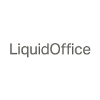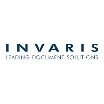Software Tips
What is a form?
A form is a template for querying data. Although each form is designed differently, all forms are based on a defined structure. This structure ensures the standardized collection of data. For the query of data, forms can contain various elements such as text fields, selection lists or tables.
Forms exist in practically all areas. Whether public authorities, companies or associations, practically everyone either still has paper forms in a drawer or the digital equivalent on the website.
Forms can be divided into two categories, those that request data and those that output data.
Examples of data requesting forms:
- Contact request
- Evaluation form
- Feedback form
- Registration form
- Personnel questionnaire
- Tax return
- Medical history form
- Accident questionnaire
Example of data output forms:
- Cover letter
- Delivery bill
- Invoice
- Inventory lists
- Parts lists
- Contribution notice
- Tax assessment
What is a forms management system?
A form management system (FMS) is the central and redundancy-free point for the creation and administration of forms. For this purpose, the form management system is equipped with appropriate functionalities. The system usually offers functions for the design of forms. The layout should be strictly separated from the content and data sources. The system includes features for the use of texts and text modules. The FMS supports the processing of data in organizations without media discontinuity and usually ensures the efficient transfer of data to specialized procedures through automated workflows. The functions of an FMS also include plausibility checks for input validation and the operation of various output channels.
Advantages of form management systems
Redundancy-free and centralized forms management

One of the most important advantages of a form management system is the central handling of forms and data. This central management avoids redundancies. With an FMS, all forms can be easily and effectively created in a uniform structure. If the incoming and outgoing data is available in a structured form, it can be automatically incorporated into processes, specialized procedures, etc.
Media continuity-free, automated workflows

Another important advantage is the automated processing of incoming data without media discontinuity and the automated form filling by specialized procedures. A simple workflow can be mapped with a form management system. This workflow enables effective processing of regular cases and accelerates administrative and business processes overall.
Improved data consistency through plausibility checks

A form management system is usually equipped with functions for checking the plausibility of data entries. Any form can only be really good if the data that is entered is actually "correct" or "accurate". For this purpose, FMS include control functions that check whether the data entries match the respective fields at all. These plausibility checks can concern, for example, the postal code, the telephone number, the e-mail address, but also billing, time spent or statistics.
Creation of the forms via templates

An important component of the form management system is the creation of form templates. For these templates, for example, texts, images, text modules, selection lists or tables can be stored. The templates can include logos and layouts or the corporate design of the organization. The advantage of templates is that they provide a common basis for all users and ensure uniform business correspondence.
Integrated applications

Another advantage of a form management system is the integrated connection of specialized procedures and the e-file. In form management systems, standardized interfaces can ensure data exchange with any third-party systems. These can include not only the aforementioned specialized processes or the e-file, but also payment systems or invoice receipt platforms, among others.
Resource relief

The use of digital forms does not only reduce the immediate consumption of paper, but also ensures faster and more effective further processing due to the data already being available digitally after capture, which saves personnel resources in addition. The creation of templates or forms for cover letters also saves resources, as not every employee has to create the basic framework for information in the header and footer of the letter him- or herself, which in turn saves time and reduces errors at the same time.
Mapping of current standards and specifications

With a form management system, legal requirements and recommendations, for example on IT security in public administrations, the standards and recommendations for e-government applications (SAGA) or accessibility, can be implemented end-to-end. As a rule, an FMS also supports all aspects of the Online Access Act (OZG).
Reduced lead times and faster approval process

Due to the predefined structure in the created forms, the captured data can be efficiently routed to the respective defined locations for further processing. This ensures fast turnaround times in organizations and subsequently also faster approval processes, as the FMS can be directly linked to workflows.
Tips and question suggestions
Further specific criteria and question suggestions for the evaluation of form management systems
- Ask about customization options for the user interface. An intuitive user interface is especially important because the system is usually used in very different departments of a company. It should also be possible for employees to operate and use it who are not so technically adept.
- Ask the vendor if the form management system has features for mapping recurring tasks.
- Ask if the software is easy to configure and built on modules. Function modules for expansion are always good additional options.
- Ask about the operating costs for installing updates or function upgrades! Also ask how often or regularly these updates and upgrades take place. The costs for updates and upgrades can differ significantly between the individual providers.
- Check with the vendor to see if the form management system offers the ability to include conditional logic when entering data into forms. With conditional logic, incorrect data entry by users can be avoided or at least significantly reduced. This saves time when evaluating the forms.
- Ask the provider about the connection options for various external microservices. For example, can business processes be connected via a REST API?
- Have the software provider show you the form designer. Is it easy to use? Can employees create forms without special programming knowledge?
- Does the form management software include its own form builder? This facilitates the creation of forms enormously. For example, are there different construction kit options for PDF forms, a wizard for creating applications, or a WYSIWYG editor?
- Ask if the vendor offers user training for stand-alone form creation. For example, are there tutorials (web tutorials or video tutorials? Does the software include job aids and tooltips?
- Ask the provider of the software if there are possibilities to check files, images, documents etc. within forms for viruses or other malicious content when uploading them?
 MR.KNOW - FORMS ASSISTANT supports the creation of electronic forms for the administration and automation of business and administrative processes as well as the use as an output management solution. Connect your forms with process logics and use CSS editors as well as case-sensitive procedures for individual interfaces taking into account the corporate design specifications. Use a wizard with preview options for linking interfaces and processes. The MR.KNOW - FORMS ASSISTANT offers simple administration through central maintenance forms.
MR.KNOW - FORMS ASSISTANT supports the creation of electronic forms for the administration and automation of business and administrative processes as well as the use as an output management solution. Connect your forms with process logics and use CSS editors as well as case-sensitive procedures for individual interfaces taking into account the corporate design specifications. Use a wizard with preview options for linking interfaces and processes. The MR.KNOW - FORMS ASSISTANT offers simple administration through central maintenance forms. With the LiquidOffice application, you benefit from a simplified and transparent connection of your forms to the workflow. The automatic connection of electronic and paper-based forms and templates is particularly advantageous.
With the LiquidOffice application, you benefit from a simplified and transparent connection of your forms to the workflow. The automatic connection of electronic and paper-based forms and templates is particularly advantageous. The goSmart® Customer Communication Management Suite supports the automated creation of documents from company data, the production of CI-compliant individual documents, and the management of physical and electronic output channels. It offers maximum compatibility through direct connection of interfaces. Enables intelligent output management with seamless export of documents for print, website or social media channels.
The goSmart® Customer Communication Management Suite supports the automated creation of documents from company data, the production of CI-compliant individual documents, and the management of physical and electronic output channels. It offers maximum compatibility through direct connection of interfaces. Enables intelligent output management with seamless export of documents for print, website or social media channels. Make your forms management efficient and error-free with firstaudit. Our system facilitates the creation, distribution and analysis of digital forms, optimizes business processes and ensures data integrity. Rely on firstaudit for seamless forms management.
Make your forms management efficient and error-free with firstaudit. Our system facilitates the creation, distribution and analysis of digital forms, optimizes business processes and ensures data integrity. Rely on firstaudit for seamless forms management.